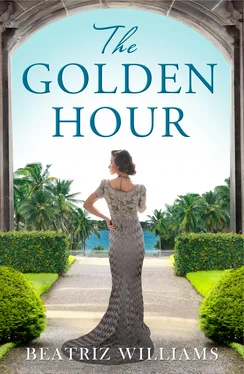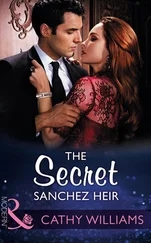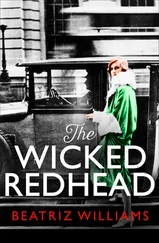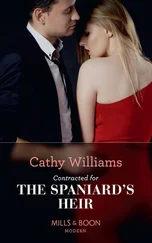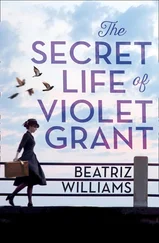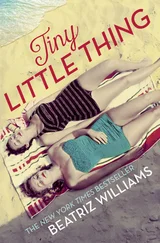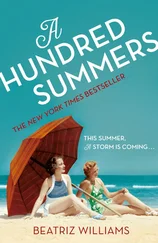“I beg your pardon, my good man,” she begins, in a brisk, quiet English voice, and the light from the lamp catches her hair, caught up in a blond knot just beneath the brim of her hat. She’s not wearing cosmetics, except maybe a touch of lipstick, and you might say she doesn’t need any. There’s something Nordic about her, something that doesn’t need ornament. Height and blondness, all those things my own Italian mother couldn’t give me, though she gave me plenty else. There’s also something familiar about her. I’ve seen that mouth before, haven’t I? Those straight, thick eyebrows soaring above a pair of blue eyes.
But no. Surely not. Surely I’m only imagining this, surely I’m only seeing a resemblance because I want to see one. After all, it’s impossible, isn’t it? Margaret Thorpe won’t receive my letter until this evening, when she arrives home from whatever government building she inhabits during working hours. So this woman can’t be her , cannot possibly be my husband’s sister, however much the sight of those eyebrows sets my heart stuttering. Anyway, her head’s now turned toward the clerk, and from this angle she looks nothing like Thorpe, not at all. Unless—
The bell jingles again, dragging my attention back to the entryway. Another draft follows, and a man shambles past the door in a damp overcoat of navy blue, a hat glittering with mist. His face is pockmarked, the only notable thing about him. He casts a slow, bland expression around the room, and it seems to me that he takes in every detail, every flock on the wallpaper and spot on the upholstery, until he arrives, quite by accident, on me.
The woman’s still addressing the clerk. No notice of us at all. I climb to my feet. “Mr. B—?”
He steps forward and holds out his hand. “You must be Mrs. Thorpe,” he says warmly, and he takes my fingers between his two palms, as if we are father and daughter, meeting for tea after a short absence.
INSTEAD OF REMAINING INSIDE THE Basil Hotel foyer (in which the enemy ears might or might not be listening, but the desk clerk certainly is) we head out into the gloom. I tend to step briskly as a matter of habit, but Mr. B— (I’m afraid I can’t reveal his real name) shuffles along at an awkward gait, and it’s a chore to keep my limbs in check. I tuck my hands inside my pockets and drum my fingers against my thighs. I feel as if he should speak first. He’s the professional, after all.
“Well, Mrs. Thorpe,” he says at last. “I must congratulate you on your resolve. To have made your way to London in wartime, to have approached my office with such an extraordinary request—why, it’s the most astonishing thing I’ve seen in some time.”
“I hope you don’t mind.”
“Mind? Of course not. If there’s one thing we admire in this country, it’s dash. Dash and pluck, Mrs. Thorpe, which you appear to possess in abundance. How long had you two been married?”
“Since July.”
“This past July?”
“Yes. The seventh.”
“Ah. Just before he was captured, then. How dreadful.”
“It was months before I had any word at all. At first, I thought he’d been called out on another of his—whatever you call them—”
“Operations?”
“Yes, operations. But when he didn’t return …”
We pause to cross the street. I’ve allowed him to choose the route; I mean he’s the one who lives here, after all, the one who understands not just the map of London but the habits of the place. A couple of bicycles approach, one after the other, and while we wait for them to pass, Mr. B— speaks again.
“Mind you, it was quite against the rules.”
“What? What’s against the rules?”
Mr. B— stares not at my face, but along a line that passes right above my head, down the street to the approaching bicycles. “Marrying,” he says blandly.
The bicycles pass. We cross the street to enter a foggy square of red brick and white trim. Several of the houses are missing, simply not there, like teeth pulled from a jaw. Mr. B— leads me to the gardens in the middle, where we choose a wooden bench and sit about a foot apart, so that our arms and legs aren’t in any danger of touching, God forbid. The button at the wrist of my left-hand glove has come undone. I attempt to refasten it, but my fingers are too stiff.
“Of course, I quite understand your distress, Mrs. Thorpe,” he says, in the voice you might use to console a child. “It’s for that reason that we tend to discourage men such as Thorpe from forming any sort of personal attachment. To say nothing of marriage.”
“We’re all human, Mr. B—.”
“Still, it’s unwise. And then to allow you any hint of his purpose there in the Bahamas—”
“Oh, believe me, he never said a word about that. I was the one who put two and two together. I was on the inside, you see. A friend of the Windsors.”
“Were you really? Remarkable. Although I suppose …” He reaches into the pocket of his coat, brushing my arm with his elbow as he manipulates his fingers inside. He draws out a familiar white envelope. I recognize it because I carried this envelope myself, in a pocket next to my skin, for the entirety of the thirty-nine hours it took to cross the Atlantic, from Nassau to London, in a series of giant, rattling airplanes, before I stamped the upper right corner and posted it from a red metal postbox yesterday evening. And it’s funny, isn’t it, how a letter you mailed with your own two hands no longer belongs to you, once it begins that fateful drop through the slot. I glimpse my own handwriting, the stamp I placed there myself, and it’s like being reunited with an estranged child who has grown into adulthood.
“You suppose?”
Mr. B— taps the edge of the envelope against his knee. “I suppose it depends on what one means by friendship .”
“In wartime, friendship can mean anything, can’t it?”
“True enough. This note of yours. Quite astonished me this morning, when my secretary delivered it to my desk.”
“But you must have known Thorpe was captured.”
“Naturally. I take the most anxious interest in my agents, Mrs. Thorpe, and your—ah, your husband—he was one of— well . Well. That is to say, Mr. Thorpe in particular. We took the news very hard. Very hard indeed. Colditz, my God. Poor chap. Awful show.”
He takes out a cigarette case, opens the lid, and tilts it toward me. I select one, and he selects another. As he lights the match, he covers the flame with his cupped hand. We sit back against the bench and smoke quietly. The wind on my cheek is cold, and the air tastes of soot, and the sky’s blackening by the instant. At first I don’t quite understand what’s missing, until I realize it’s the absence of light. Not a pinprick escapes the windows around us, not a ray of comfort. It’s as if we’re the only two people alive in London.
“There used to be a railing,” says Mr. B—.
“What’s that?”
“Around the square gardens. A railing, to keep residents in and everybody else out, you see. They took it away and melted it down for iron.”
“I suppose it’s more democratic this way.”
“I suppose so. Here we are, after all, the two of us. Sitting on this bench, quite without permission.”
“And that’s what we’re fighting for, isn’t it? Democracy.”
He straightens his back against the bench. “Well, then. Leonora Thorpe. Plucky young American from across the ocean. What are we to do with you?”
“I don’t understand.”
“Why are you here? You’ll forgive me, but London isn’t the most peaceful of cities, at the moment. I imagine, wherever you come from—”
“Nassau.”
“Yes, Nassau. But you weren’t born there, were you?”
Читать дальше
